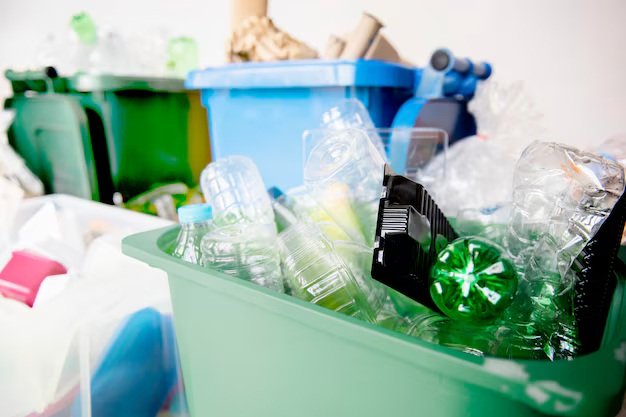Recycling Sector Reaction to Stalled Plastics Treaty — What it Means for Local Operators
A recent round of United Nations talks in Geneva failed to deliver the long-promised global treaty to curb plastic pollution. Negotiators walked away without a consensus after fierce disagreement over whether the agreement should include limits on the production of virgin plastics or focus mainly on waste management and recycling. The collapse has left governments, environmental groups and businesses asking the same question: where does that leave the companies and people who actually collect, sort and reprocess plastic — the local operators on the front line of the circular economy?
The answer is both practical and political. For recyclers, the immediate reality is unchanged: waste keeps arriving, markets for secondary materials remain volatile, and local operators still need to pay salaries, buy parts and find buyers for bales. But the political setback matters because a strong, global treaty could have delivered clearer rules, bigger finance flows, harmonised standards and predictable demand for recycled content. Without that signal, local businesses face more uncertainty — and more pressure to find shorter, smarter routes to resilience. A report by UNEP described the adjournment and warned that the process would continue.

In This Article
- Why the Geneva Talks Stalled — The Facts
- How the Recycling Sector Reacted
- What Local Operators Should Do Now — Practical Steps
- The Treaty Pause is a Call to Action, Not a Stop Sign
Why the Geneva Talks Stalled — The Facts
The recent Intergovernmental Negotiating Committee meeting (INC-5.2) was supposed to finish the text for the world’s first legally binding plastics treaty. Instead, it adjourned without agreement on several core items: production caps, controls on toxic additives, and financing for implementation. Countries that produce large amounts of fossil-fuel feedstock for plastics pushed to keep the treaty focused on recycling and waste management rather than limits on new production. A report by the World Economic Forum explained this split and why it matters for long-term plastic flows.
The scale of the problem helps explain why some delegations wanted stronger measures. A major OECD analysis warned that, unless policies change, plastic production and waste could nearly triple by 2060, with less than a fifth of plastic waste being recycled and most still ending up in landfills.
Those numbers matter to recyclers. If production keeps rising rapidly, waste volumes will grow, and price pressure on recycled material will persist, unless demand for recycled content is also enforced. Conversely, a treaty that capped production — and thereby slowed virgin supply growth — would shift the basic economics by making high-quality recycled material more valuable and more in demand. The Geneva talks collapsed before resolving which path to take, leaving operators to plan for both possible futures. Reuters provided contemporaneous reporting on negotiators’ comments and the political dynamics that led to the adjournment.
How the Recycling Sector Reacted
Reaction from the recycling and waste sector was immediate and mixed. Industry groups and equipment makers urged negotiators to focus on measures that would accelerate collection, sorting and end-markets for recycled plastics — because those are the things they can invest in and scale now. Amy Lestition Burke, CEO of the Solid Waste Association of North America, told reporters she was disappointed but hopeful the conversation would continue. Packaging and waste trade outlets reported that recycling firms were watching for treaty language that would affect infrastructure and market demand.
Equipment companies and technology providers who attended Geneva framed the issue in technical terms. Rish Mitra, founder of the AI-sorting firm Greyparrot, said, “No one with any serious knowledge of or experience in the waste industry believes that recycling alone can tackle our huge plastic pollution problem.” That was quoted in coverage of the talks as a call for upstream measures to accompany downstream fixes. A CEO at Tomra, a major sortation-equipment maker, expressed regret at the failure to conclude the treaty and urged policies that reflect how international plastic value chains operate.
Environmental groups and many countries pushing for production controls framed the collapse very differently: they argued that no deal is better than a weak deal and called for continued pressure for a treaty that addresses the full lifecycle of plastics. Ana Rocha of GAIA said rejecting a weak draft was the right choice for communities suffering the worst impacts.
Beyond statements, there are real, on-the-ground stories that show what the policy gap means for local actors. In Kenya, Nzambi Matee founded Gjenge Makers to turn hard-to-recycle plastic into paving blocks; her business proves plastic can be an economic input rather than merely waste. Matee’s work — which has been covered in international media and featured by Reuters in 2021 — shows that local innovation exists and can scale, but it also depends on a predictable flow of feedstock and buyers. That predictability is exactly what a strong treaty could have helped deliver.
On the other end of the value chain, informal waste pickers and small yards in cities from Lahore to Lagos operate in fragile markets where price swings, export bans and contaminated bales can wipe out margins. AP’s coverage of Geneva included images and reporting that highlighted how essential and vulnerable these workers are across the globe. A sudden policy shift in one importing country or a collapse of export routes can instantly change the business case for local recyclers who lack buffer capital.
A short table below summarises a few of the facts most relevant for operators and where they came from:
| Key figure or trend | Why it matters to local recyclers |
|---|---|
| Global production ~430–460 Mt/year (recent baseline) | More plastic made = more feedstock, but also pressure on prices and sorting needs |
| Plastic waste could nearly triple by 2060 | Long-term volumes will rise; recycling alone may not keep pace |
| Treaty talks adjourned without agreement (Aug 2025) | No immediate global rules or finance; delay for harmonised standards |
| Industry demand for recycled content is uneven | Local operators need clearer demand signals to invest in quality and capacity |

What Local Operators Should Do Now — Practical Steps
The stalled treaty raises questions, but it does not change the daily business of running a recycling operation. Here are practical, evidence-based steps local operators — from small collection yards to medium-sized reprocessors — can take right now. These are drawn from what industry groups, equipment firms and policy analysts have recommended in recent coverage and briefings, and they reflect what resilient operators in several countries are already doing on the ground.
First, focus on material quality. High-quality, well-sorted bales fetch better prices and are less likely to be rejected by buyers when regulations or standards shift. Technology like optical sorters, AI-assisted cameras, and better manual training reduces contamination rates. Equipment makers in Geneva stressed that better sorting infrastructure is a basic lever to improve value chains.
Second, lock in demand where you can. Long-term purchase agreements with local manufacturers (bricks, furniture, fencing, construction pavers) or participation in producer responsibility schemes can soften market volatility. Large brands and packaging buyers increasingly talk about “harmonised” recycling and recycled-content targets; where those policies exist, they can create dependable demand. The World Economic Forum and trade press have described how harmonisation helps build markets.
Third, diversify revenue streams. Operators that add value (by washing, pelletising, or turning plastic into intermediate products) reduce exposure to single-market price drops. The story of Gjenge Makers in Nairobi shows how product innovation — turning mixed HDPE/PP into a construction material — creates alternative buyers and higher margins.
Fourth, strengthen partnerships with the informal sector. In many emerging-market cities, waste pickers are the backbone of supply. Formal contracts, fair pay and health protections reduce turnover and improve the quality of the collected material. A number of global initiatives emphasise the importance of including informal workers in formal systems.
Fifth, advocate locally and collaborate regionally. While the global treaty is in flux, national and sub-national policies continue to change. Join industry associations, participate in extended producer responsibility (EPR) design talks, and seek regional harmonisation of standards. Packaging and waste groups in Geneva underlined that credible policy engagement can create the business certainty needed to attract investment.
Finally, plan for multiple futures. The OECD’s projections show a possible future of massive growth in plastic flows unless policy changes; at the same time, industry lobbying and commodity economics could keep virgin supply cheap for years. Bake scenario planning into your business strategy: stress-test cashflows for low recycled-material prices, and model upside if mandates for recycled content or production limits appear. The UNEP and WEF analyses recommend policy-proofing business plans as an immediate resilience measure.
The Treaty Pause is a Call to Action, Not a Stop Sign
The failure in Geneva matters. A global treaty could have brought clearer rules, faster finance and harmonised standards that make recycling businesses more bankable and predictable. But the pause does not mean “no progress.” Industry players, local innovators and civil society have many levers they can pull now — and a number have already started doing so. From high-quality sorting and local product innovation to better inclusion of waste pickers and active engagement with national EPR rules, local operators can reduce short-term risk and improve long-term viability.
If there is one lesson from the past week in Geneva, it is this: policy and practice must move together. Local operators should keep improving the technical and commercial parts of the business while pushing for the policy signals that make investment and scale possible. As Inger Andersen of UNEP said at the close of the talks, “We did not get where we wanted, but people want a deal.” That will be cold comfort for some today, but it is also an invitation to make local systems stronger in the meantime.







